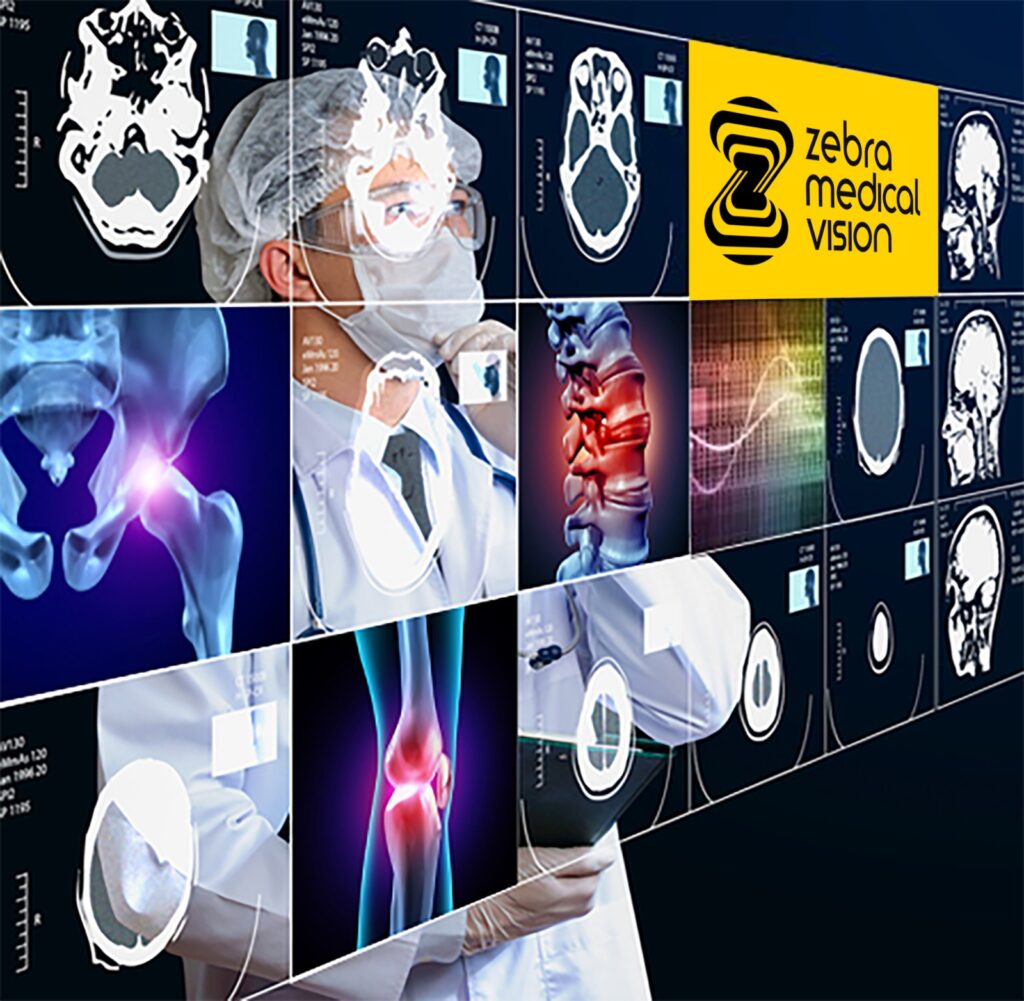Israeli AI medical imaging insights startup Zebra Medical Vision nabbed another clearance by the US FDA, its 7th, for a patented orthopedic surgery planning solution, the company announced last week.
The approval is for an AI solution to extract bone measurements from X-ray scans, at the same quality as CT scans, for planning orthopedic surgical procedures. Zebra Medical recently patented the solution that it says can provide for new markets for implant surgeries in places where CT scans and MRIs are not available or affordable for such procedures.
Zebra Medical hopes to disrupt a workflow that can be time-consuming, expensive, and inconvenient for patients as most pre-surgery planning requite CT scans or MRI imaging. The technology uses “AI algorithms to reconstruct a 3D model of the patient’s bones from standard X-ray images – providing orthopedic surgeons full-shape landmarks and measurement information accurately and affordably,” the company said.
“Zebra Medical Vision is proud to lead the AI medical imaging market,” says Ohad Arazi, CEO of Zebra Medical Vision. “Expanding from radiology to orthopedic surgery supports our mission of leveraging machine learning and computer vision to help patients achieve better care everywhere with more readily available resources.”
Zebra Medical was founded in 2014 by Eyal Toledano, Eyal Gura, and Elad Benjamin, as an AI solution that reads medical scans and automatically detect anomalies. Through its development and use of different algorithms, Zebra Medical has been able to identify visual symptoms for diseases such as breast cancer, osteoporosis, and fatty liver as well as conditions such as aneurysms and brain bleeds.
This latest FDA clearance is Zebra’s seventh for an AI product. It has another six FDA clearances, namely for a mammography solution called HealthMammo, its first tool in oncology; a HealthCXR tool intended for the identification and triaging of pleural effusion in chest X-rays; another chest x-ray tool called HealthNX used to identify pneumothorax, also known as a collapsed lung; a tool called HealthICH that detects high-risk internal brain bleeds based on standard, non-contrast head CT scans; an AI solution called Vertebral Compression Fractures (VCF) that identifies findings suggestive of compression fractures in scans; and a solution for detecting coronary artery disease (CAD).
Zebra Medical’s software solutions are used in hospitals in the US, Europe, Australia, India, and Latin America.
The company recently announced a partnership with Scottish digital transformation consultancy Storm ID to develop an AI-based preventative care solution that will identify people at risk of osteoporosis, a bone disease that can cause bones to become weak and brittle
The company has raised over $50 million from investors such as OurCrowd, aMoon, Nvidia, and Johnson & Johnson.
Related posts

Israeli AI Safety Tool Among TIME’S Best Inventions For 2024

TAU Team Discovers Mechanism To Eliminate Cancerous Tumors

Ashdod Port Investing In Startups As Part Of Innovation Strategy




Facebook comments